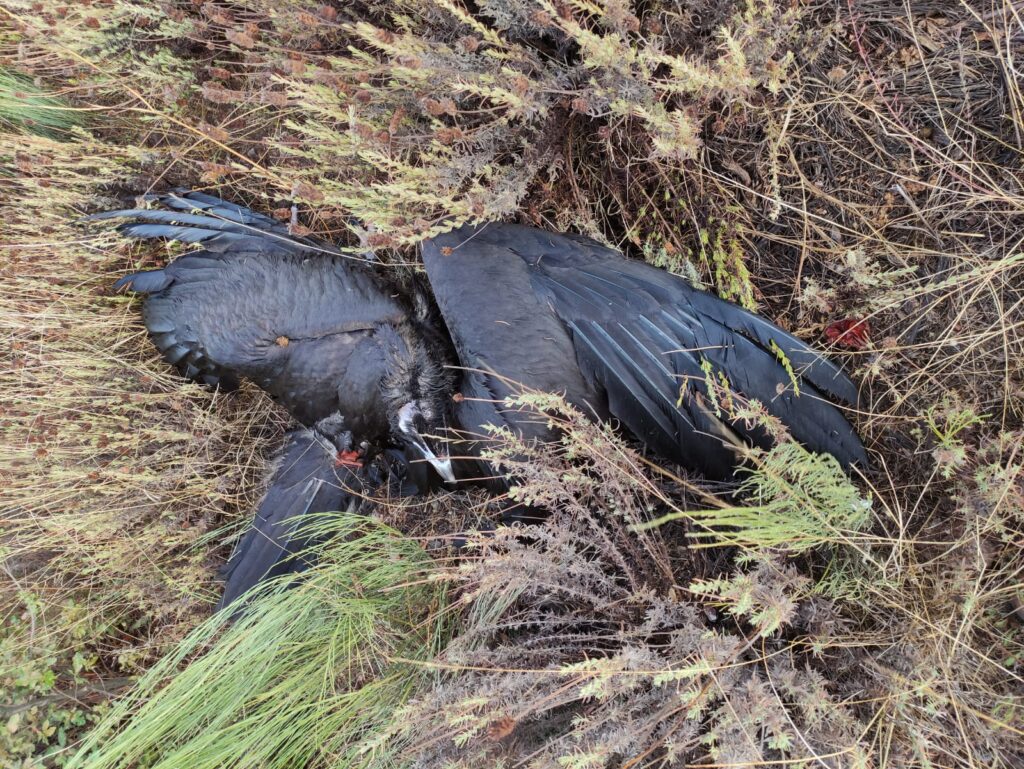Several partners from the LIFE Aegypius Return project took part in the 1st Conference on Toxins in a Forensic Context – The Importance of Expert Analysis, organised by the Drugs and Toxic Substances Sector of the Scientific Police Laboratory of the Polícia Judiciária (LPC/PJ) last September. The event aimed to promote the exchange of experiences, case studies and laboratory approaches in the detection, identification and assessment of toxic substances in criminal investigations.

A multidisciplinary approach to forensic analyses
The conference brought together forensic experts, laboratory technicians, forensic pathologists, law enforcement authorities, academic researchers, as well as representatives from public institutions and environmental non-governmental organisations (NGOs).
During the event, the scientific and laboratory competences of the LPC/PJ were presented, as well as real cases and good practices applied in various fields, from forensic medicine to narcotics and sports.

Wildlife crime under the spotlight
Forensic analysis applied to the fight against wildlife crime was also addressed and discussed, particularly following the presentation by Professor Sandra Branco of the Department of Veterinary Medicine at the University of Évora. Her intervention highlighted the work carried out by the National Network of Necropsy and Forensic Toxicology Centres. Through the Portuguese Antidote Programme (Programa Antídoto Portugal), this network aims to improve response capacity in suspected cases of wildlife poisoning.
However, as reported by the projeto LIFE Aegypius Return project, there are numerous operational limitations that hinder the investigation of cases, from the collection of evidence in the field to the constraints of toxicological analyses currently possible in the official toxicology laboratories associated with the Portuguese Antidote Programme. Difficulties in conducting proper investigations prevent the identification of perpetrators and the application of sanctions, perpetuating impunity in cases such as the illegal use of poisons – a serious threat to biodiversity and public health, and one of the main causes of mortality among vultures and other scavenger species in Portugal and worldwide.
It was therefore important to confirm the recent capacity of the LPC/PJ to carry out a wide range of toxicological analyses, as well as its interest in participating in wildlife poisoning cases. The inclusion of the LPC/PJ, equipped with more advanced technology, in the Portuguese Antidote Programme and in the regular circuit of forensic analyses carried out in the context of crimes against biodiversity would certainly contribute to overcoming current gaps in the fight against environmental crime – a possibility that was raised at the end of the Conference.

Capacity building to combat wildlife crime
Portugal is part of the Wildlife Crime Academy (WCA), a training programme for professionals and institutions in various countries to strengthen the fight against wildlife crime. Targeted professionals include law enforcement officers, nature conservation authorities, public prosecutors, toxicologists, veterinarians and NGO staff, among others involved in the detection and investigation of wildlife crime cases.
The WCA is led by the Vulture Conservation Foundation, which in Portugal has the support of the NGO Liga para a Protecção da Natureza (LPN) and Sociedade Portuguesa para o Estudo das Aves (SPEA) in its implementation.
Among other training and capacity-building objectives, a national diagnosis of wildlife crime will also be carried out, which – in cooperation with the competent authorities – will identify and define priority areas for action to improve the fight against this type of crime.

About LIFE Aegypius Return

O projeto LIFE Aegypius Return é cofinanciado pelo programa LIFE da União Europeia.O seu sucesso depende do envolvimento de todos os stakeholders relevantes, e da colaboração dos parceiros: a stakeholders, and the collaboration of the partners: the Vulture Conservation Foundation (VCF)beneficiário coordenador, e os parceiros locais Palombar – Conservação da Natureza e do Património Rural, Herdade da Contenda, Sociedade Portuguesa para o Estudo das Aves, Liga para a Protecção da Natureza, Associação Transumância e Natureza, Fundación Naturaleza y Hombre, Guarda Nacional Republicana e Associação Nacional de Proprietários Rurais Gestão Cinegética e Biodiversidade.

Wildlife Crime Academy




